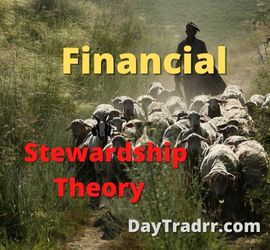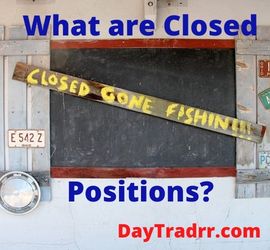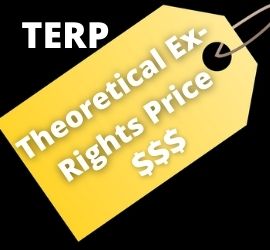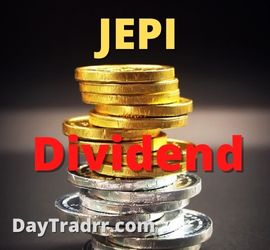Financial Stewardship Theory
 Financial Stewardship Theory argues that people working for organizations are self-driven to complete tasks and obligations entrusted to them. Profit motivates all businesses to some extent as it represents the primary means of survival. However, some may see themselves as part of something larger. According to stewardship theory, owners do not necessarily own a corporation. Rather, they merely hold it in trust. A firm’s operation may be a vehicle for a greater calling or created to fulfill a founder’s initial vision. In those instances, profit typically takes a back seat in order to meet a company’s social objectives.
Financial Stewardship Theory argues that people working for organizations are self-driven to complete tasks and obligations entrusted to them. Profit motivates all businesses to some extent as it represents the primary means of survival. However, some may see themselves as part of something larger. According to stewardship theory, owners do not necessarily own a corporation. Rather, they merely hold it in trust. A firm’s operation may be a vehicle for a greater calling or created to fulfill a founder’s initial vision. In those instances, profit typically takes a back seat in order to meet a company’s social objectives.
A steward is someone who protects and looks after the needs of others. Company leaders, according to the stewardship theory, protect the interests of the owners or shareholders. As a result, their key function is to make decisions on an owner’s or shareholder’s behalf. In other words, a financial steward’s sole goal is to build and sustain a profitable corporation so that the shareholders benefit. Organizations often delegate the CEO and Chairman’s duties to a single leader. This fits well with the financial stewardship theory. Then, the board of directors can be made up largely of in-house members. This structure enables comprehensive knowledge of the organizational operation as well as a strong commitment to success.
Financial Stewardship Theory and Corporate Governance
The stewardship theory of governance paradigm has a clear goal of shareholder fulfillment. The presence of a single CEO creates a single channel for communicating company requirements to shareholders. Conversely, shareholders have a primary channel to voice their priorities to the firm. This also eliminates misunderstanding about who is in command when a corporation is forced to weather a storm. Stewardship governance necessitates that a CEO be trustworthy and willing to sacrifice personal priorities for the sake of the firm.
Not every business practices active stewardship. Some engage in activities that have little environmental impact, while others concentrate on various aspects of corporate responsibility. When a firm engages in stewardship, it must generally proclaim its commitment to bear responsibility for the environmental effects of its operations. Many corporations collaborate with environmental organizations to improve their operations. However, active environmental stewardship comes at a price. For example, using renewable energy alternatives, such as hybrid automobiles or a solar-power is cutting-edge stewardship. However, it also requires a significant initial investment. Tax incentives can help mitigate these expenses. There are additional benefits enlightened firms can realize from less reliance on ecologically destructive energy sources with rising prices. Nevertheless, managing stewardship from a budgetary perspective is a problem for any company looking to enhance its environmental standing.
Stewardship Theory Vs. Agency Theory
Agency Theory describes how to effectively manage partnerships in which a principal specifies which job to undertake while an agent actually does it. In general, agency theory is used to understand and address problems in the connection between corporate owners and their agents. That connection is most typically between shareholders, as principals, and firm executives, as agents.
According to agency theory, CEOs use their powerful positions to maximize their personal economic value. However, stewardship theory contends that CEOs are motivated by intrinsic rewards. As a result, they will balance their interests with those of other stakeholders.
- Agency Theory – According to agency theory, CEOs can use their powerful positions to maximize their personal economic value. In other words, with agency theory, companies function as agents for their shareholders. That is, shareholders, engage in corporate ownership and thereby entrust their resources to the administration of the corporation’s directors and officers. In bigger organizations, there is frequently a substantial difference between executives’ and shareholders’ immediate and long-term interests. This is largely due to the short-term need for profits and earnings as well as the asymmetrical knowledge that officers and directors have in comparison to shareholders.
- Financial Stewardship Theory – Stewardship theory contends that CEOs can be motivated by intrinsic rewards. As a result, they may balance their interests with those of other stakeholders. Financial Stewardship Theory argues that people working for organizations are self-driven to complete tasks and obligations entrusted to them.
Financial Stewardship Theory Example
Office Depot was nominated as a Best Corporate Stewart by the U.S. Chamber of Commerce Foundation. Office Depot sells office products and services through retail locations globally. The company boasts a dedicated sales team, award-winning catalogs, and global e-commerce operations. The corporation strives to deliver value to its shareholders as well as its bottom line. Office Depot accepts its responsibility as a good corporate citizen as an enterprise that cares. This viewpoint is reflected in the company’s environmental practices, commitment to diversity, and community outreach.
Office Depot launched an environmental strategy to buy greener, be greener, and sell greener. The goals associated with reducing the company’s environmental footprint were expected to offer many benefits, including the satisfaction that comes from taking better care of the planet; financial savings resulting from greater efficiencies; and an increase in the number of customers who share the company’s values. (Source: https://www.uschamberfoundation.org)
Effects On Business
According to Business Insider, a company committed to a greater purpose will attract clients that share that same purpose. On the other hand, customers carefully balance the owners’ statements about stewardship or social responsibility in their corporate governance against how the firm actually performs. Disparities between talk and action repel customers. A good product is no longer enough to win over a customer. Shoppers demand more than simply quality, and they frequently seek products and brands that reflect their particular values. (Source: businessinsider.com)
Effects On Employees
Employees can usually determine if a company’s stewardship attitude is reflected in how they are treated. Workers may have higher expectations than if an employer is just motivated by profit. On the other hand, employees that share the same vision tend to stick around and work hard. There is satisfaction in working to achieve the company’s goals. Even if the pay isn’t as good as it could be elsewhere. When employees feel like they’re part of something bigger, they have a better sense of stewardship.
Effects On Clients
People’s political ideas are sometimes polarized. Therefore, it’s critical to examine the strengths and drawbacks of consumer stewardship theory. Some customers will want to feel like they’re a part of something bigger. Therefore, they’ll stick with a stewardship-driven company even if the price of goods or services is higher. However, a company’s stance on stewardship may irritate other potential consumers. Especially if its cause is unpopular or management becomes self-righteous in their opinions.
Financial Stewardship Theory Pitfalls
Companies that are vocal about their stewardship practices are open to a good deal of scrutiny. If clients or employees believe the greater mission is empty slogans, the organization will lose trust or credibility. A firm may use its social duty to justify higher costs or subpar products. Even if a corporation sticks to its aim, it may forego some revenues in the name of a greater good. Some potential pitfalls include:
- Idealism – The role of the corporate steward is over-simplified and unrealistic. For financial stewardship to work, managers must pursue goals other than financial ones. For example, a sense of worth, altruism, a good reputation, a job well done, a sense of fulfillment, and a sense of purpose.
- Loss of focus – Stewardship may fall by the wayside as a firm matures if the founders are no longer around to set the tone.
- Human nature – The limitations of stewardship theory emerge from the fact that managers do not always act as good stewards. Moreover, they can and do use their position to make decisions that are not in the best interests of their shareholders.
Up Next: SAM Exclusion – System for Award Management Exclusions
 A SAM exclusion party is any person or entity that is disqualified or deemed ineligible from being awarded contracts involving Federal funds. The System for Award Management (SAM) is a federal government network. It gathers, validates, maintains, and disseminates data about individuals and companies eligible for contract awards. The SAM database contains a list of all contractors who have been approved to do business with the federal government. Moreover, it includes a list of companies that are not permitted to bid on contracts. Before engaging in a contract, agencies must use SAM to ensure that the entity is not a disqualified party.
A SAM exclusion party is any person or entity that is disqualified or deemed ineligible from being awarded contracts involving Federal funds. The System for Award Management (SAM) is a federal government network. It gathers, validates, maintains, and disseminates data about individuals and companies eligible for contract awards. The SAM database contains a list of all contractors who have been approved to do business with the federal government. Moreover, it includes a list of companies that are not permitted to bid on contracts. Before engaging in a contract, agencies must use SAM to ensure that the entity is not a disqualified party.
SAM consolidates many different government databases. The SAM system is used by government organizations to locate potential contractors. Additionally, it helps them analyze information about vendors that have submitted bids. Moreover, federal purchasers and GSA contractors can identify which parties are not eligible for federal procurement. If you have “an active exclusion,” the agency will not do business with you. A corporation may be denied government contracts for a variety of reasons.




